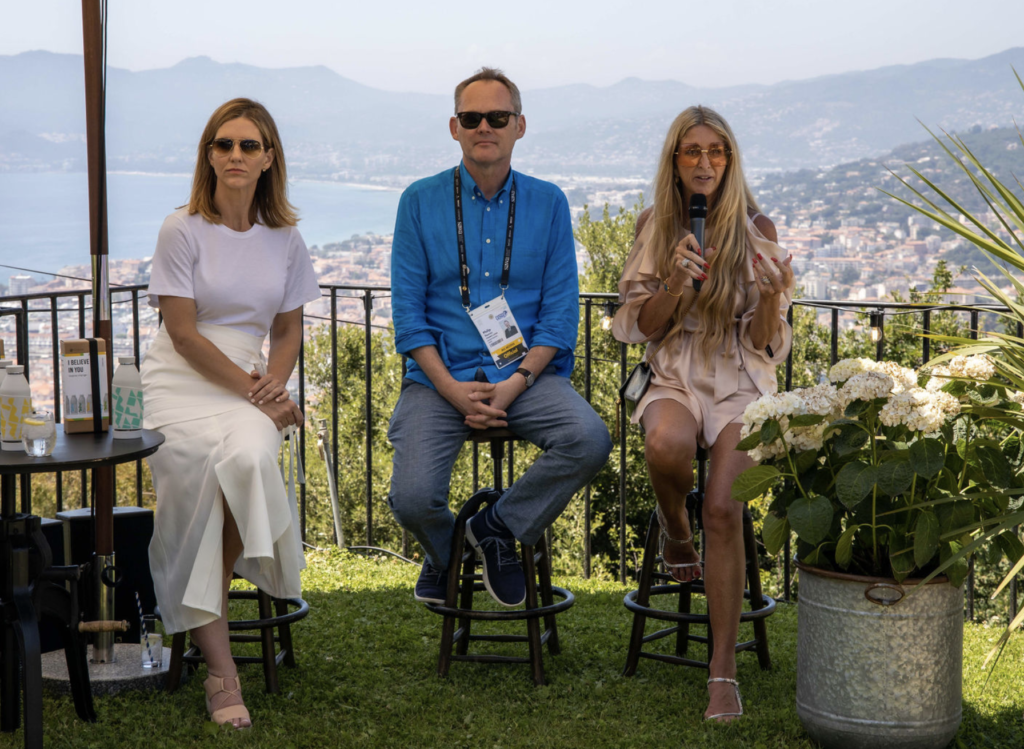Today’s pressing social and environmental crises necessitate corporate action. Climate change, public health problems, poverty alleviation and other major challenges are too big for non-profits, governments and philanthropists to tackle alone. Consumers are also looking to support brands that actively build a better world. While every company should champion social impact to build a better world and earn their license to operate, no one can do it alone. We must form purposeful partnerships to build the future we want to pass on to our children.

The Sustainable Development Goals (SDGs) present a comprehensive global framework for impact driven action. Working in isolation on the SDGs, however, won’t allow us to provide solutions at scale fast enough. To accelerate progress towards the global goals companies and sectors must collaborate. We must share best practices and support each other by contributing our strengths and outsourcing our weaknesses to meet the goals as soon as possible.
Not only is purpose driven collaboration good for global development, it’s also good for business. Partnerships open new business opportunities, media coverage, word of mouth advertising, employee engagement and consumer goodwill.
An excellent example of collaboration around the SDGs is the Global Goals House hosted by SAP and Deloitte Digital at the Cannes Lions Advertising Festival.
“The whole idea is that the Goal House, founded this year at Cannes Lions, acts as a platform for having the difficult conversations,” Ann Rosenberg, SAP Senior Strategic Business Process Management Consultant, tells We First Branding.
The Global Goals House brings together individuals from the public, private and nonprofit sectors to discuss and “define solutions” around the SDGs.
“It’s easy to talk about how great our companies are or how good our product is, but there’s always an elephant in the room,” Rosenberg says. “For example, if you look at the whole fashion industry, we buy clothes, we wear clothes. We don’t even know where they come from. People are good around the world but they just aren’t informed as to the impact of the products they buy or how they were made.”
The Global Goals House was designed as a powerful platform for partnerships that could address such issues and help brands deliver on the SDG goals.
“What you can do alone is not going to be big enough to solve the global goals,” Rosenberg says. “So, you need to say, ‘This is what I bring, what do you bring to the table to provide solutions?’”
SAP is taking purposeful partnerships beyond Cannes to New York and around the world. The global software giant is hosting “meetups, dinners, breakfasts, lunches and more where we bring in operations, we bring in government, we bring in philanthropists, we bring in students, citizens, where everybody comes together and it’s all linked to delivering on the Global Goals,” Anne says.
Addressing the Global Goals is also a powerful trigger for aligning your business and brand.
“When a company launches a campaign they make a promise that needs to be fulfilled,” Rosenberg states. “The storytelling and ad campaign need to be linked to the way you run your business. Our philosophy is that every single marketing campaign, everything you’re selling, needs to have a purpose in it, otherwise it’s not a story. It shouldn’t even be told.”
“The people who come up to the Global Goals House make that extra effort. They do it because of the company purpose. They live by that purpose. When you live by your purpose anything else is not important. It is the purpose that determines what you do and don’t do.”
That purpose can also be shared. The Global Goals House is about the “responsibility SAP has as a company,” Rosenberg explains. “For Deloitte it’s the same thing. We’re inviting all others and uniting everybody to be part of this.”
“We want people to build their own Goal Houses. We want people to get this movement going around the world and to be part of the push to make it happen.”
It also must be done with integrity. The Global Goals House itself is designed as a powerful example of sustainability. “It features natural, ethically-sourced and biodegradable materials throughout.” The space is constructed to ignite the feeling of inspiration, openness and collaboration.
SAP and Deloitte are creating a meaningful space where organizations of all types can collaborate to meet the 17 Sustainable Development Goals. As the Global Goals House demonstrates, it’s critical to suspend our competitive instincts and invite other leaders, stakeholders and organizations to join your purpose-driven mission. “When you begin to commit to this work, you very quickly find people who share the same vision and you can begin to gather community around you,” Rosenberg shares. It’s that community, aligned around shared values and a common set of goals, that is so desperately needed for the future of business and planet, for this generation and all that follow us. Find out more about Global Goals House and how you can collaborate to realize the Sustainable Development Goals here.

